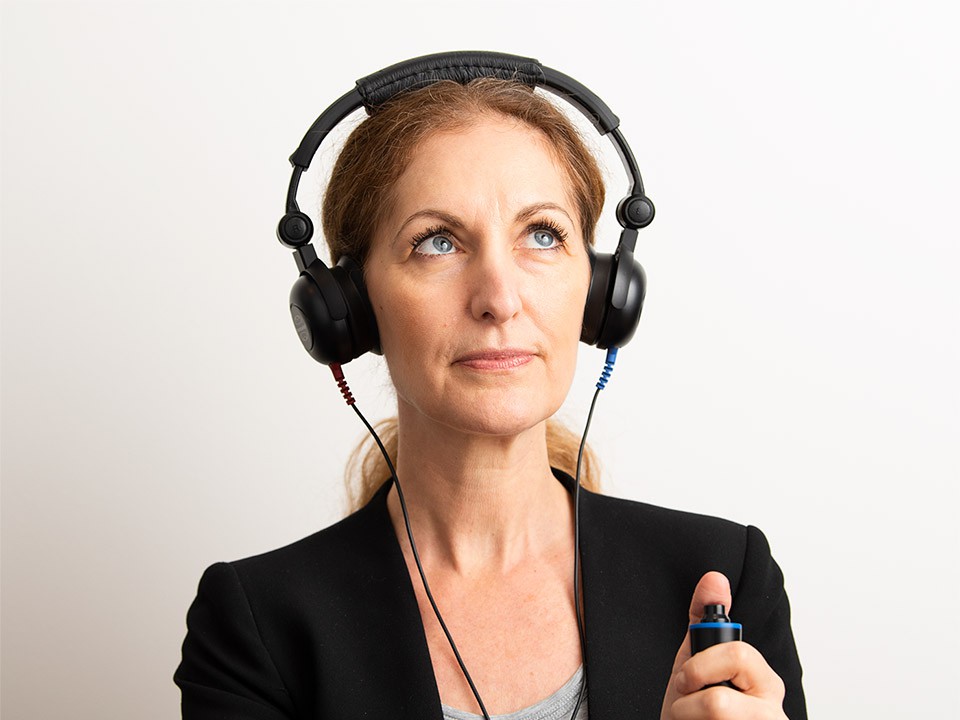Causes and Symptoms of age-related hearing loss (Presbycusis)

Hearing loss is a common problem that affects many individuals as they grow older. Presbycusis, or age-related hearing loss, is a form of hearing impairment that occurs gradually over time. It is caused by various factors, including genetics, lifestyle, environmental pollutants, and noise exposure. In this article, we will discuss the anatomy of the ear, factors that contribute to presbycusis, symptoms, diagnosis, and management strategies for the condition.
What is Presbycusis?
Presbycusis is a type of sensorineural hearing loss that occurs due to the loss of hair cells in the inner ear, which transmits sound signals to the brain. It usually begins to affect individuals over the age of 65 and tends to worsen over time. Presbycusis is a common condition, affecting approximately one in three adults over the age of 65.
While presbycusis is often associated with aging, it can also be caused by exposure to loud noises, certain medications, and medical conditions such as diabetes and high blood pressure. Symptoms of presbycusis include difficulty hearing high-pitched sounds, trouble understanding speech in noisy environments, and the need to turn up the volume on the television or radio. Treatment options for presbycusis include hearing aids, cochlear implants, and assistive listening devices. It is important for individuals experiencing hearing loss to seek medical attention and discuss treatment options with their healthcare provider.
What causes Presbycusis (age-related hearing loss)?
As we age, the hair cells in the inner ear begin to deteriorate, leading to a gradual decline in hearing ability. The hair cells are responsible for transmitting sound signals to the brain, and any loss of these cells can cause hearing loss. In addition, the blood supply to the inner ear decreases with age, which can also contribute to hearing loss.
Another factor that can contribute to hearing loss in ageing is exposure to loud noises over time. This can cause damage to the hair cells in the inner ear, leading to hearing loss. It is important to protect your ears from loud noises by wearing earplugs or earmuffs when in noisy environments, such as concerts or construction sites.
Factors Contributing to Age-related Hearing Loss
There are several factors that contribute to age-related hearing loss, including genetics, exposure to noise, and environmental pollutants. Individuals whose parents or other family members have had hearing loss may be more likely to develop the condition themselves. Exposure to loud noise, such as working in a noisy environment or attending concerts and loud music events, can also contribute to hearing loss. Environmental pollutants such as chemicals, smoke, and certain medications can also cause hearing loss.
Genetic Predispositions to Presbycusis
Research has shown that there may be a genetic component to presbycusis. Certain genes may make individuals more susceptible to hearing loss as they age. Studies have identified several genetic variations that may increase the risk of developing presbycusis.
Noise-Induced Hearing Loss and Its Impact on Age-related Hearing Loss
Noise-induced hearing loss is a common cause of hearing loss, particularly among people who work in noisy environments. This type of hearing loss can also contribute to age-related hearing loss, as it can damage the hair cells in the inner ear. Individuals who are exposed to loud noise for prolonged periods may be at greater risk of developing age-related hearing loss.
Role of Lifestyle Factors in Presbycusis
Lifestyle factors can also contribute to age-related hearing loss. Smoking and drinking alcohol have been linked to hearing loss, particularly among older adults. A healthy diet and regular exercise may help to reduce the risk of developing hearing loss as we age.
The symptoms
The symptoms of age-related hearing loss can vary from person to person. Some individuals may experience a gradual decline in hearing ability, while others may experience sudden hearing loss. Common symptoms of age-related hearing loss include difficulty hearing conversations, trouble hearing in noisy environments, ringing in the ears (tinnitus), and the need to turn up the volume on the television or radio.
Presbycusis treatment
Treatment options for age-related hearing loss include hearing aids, cochlear implants, and assistive listening devices. Hearing aids can help to amplify sounds, making them easier to hear, while cochlear implants can bypass the damaged hair cells and directly stimulate the auditory nerve. Assistive listening devices, such as FM systems and loop systems, can also improve hearing ability in noisy environments.
New Developments in Research and Treatment for Age-related Hearing Loss
Finally, there are many new and exciting developments in research and treatment for age-related hearing loss. Advances in technology are making devices such as cochlear implants more effective and accessible, while new drugs and therapies are being developed to target the underlying causes of presbycusis. Researchers are also studying the use of stem cells to regenerate damaged hair cells in the inner ear, which could potentially lead to a cure for age-related hearing loss in the future.
Presbycusis is a common condition that affects many individuals as they grow older. It can have a significant impact on quality of life, making it difficult to communicate with friends and loved ones and participate in daily activities. However, with proper diagnosis and treatment, individuals with presbycusis can manage their condition effectively and enjoy a good quality of life. With ongoing research and development, the outlook for individuals with age-related hearing loss continues to improve.
Living with Presbycusis
Coping Strategies for People with Age-related Hearing Loss
Individuals with age-related hearing loss can implement various coping strategies to make communication easier. These include asking people to speak clearly and facing them when speaking, using visual cues such as lip-reading, and avoiding noisy environments.
Support Resources for People with Presbycusis
There are also many support resources available for individuals with presbycusis, such as advocacy groups and liaising with an audiologist or hearing specialist. These resources can provide individuals with information about the latest treatments and technologies, as well as support and guidance on how to cope with the various challenges of living with hearing loss.
If you're concerned about your hearing, book in for a complimentary consultation in one of over 80 clinics nationwide.


